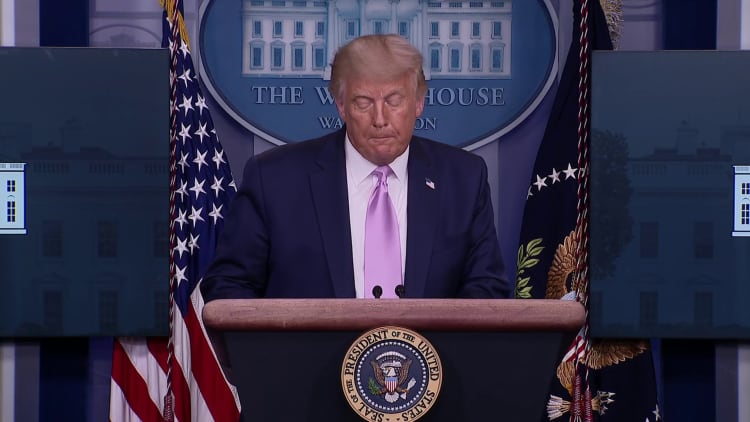WASHINGTON — The Trump administration is set to announce a slew of fresh sanctions and additional measures in support of Washington's maximum pressure campaign against the Iranian regime.
As early as Monday, the United States could sanction more than two dozen people and entities involved in Iran's nuclear, ballistic missile and conventional arms programs, a senior U.S. official told Reuters.
On Saturday, the United States unilaterally re-imposed U.N. sanctions on Tehran through a snapback process, a process that other U.N. Security Council members have previously said Washington does not have the authority to execute.
"If UN member states fail to fulfill their obligations to implement these sanctions, the United States is prepared to use our domestic authorities to impose consequences for those failures and ensure that Iran does not reap the benefits of U.N.-prohibited activity," Secretary of State Mike Pompeo said in a Saturday evening statement.
"Our maximum pressure campaign on the Iranian regime will continue until Iran reaches a comprehensive agreement with us to rein in its proliferation threats and stops spreading chaos, violence, and bloodshed," Pompeo said, adding that in the coming days the Trump administration "will announce a range of additional measures to strengthen the implementation of UN sanctions and hold violators accountable."
The U.S. Special Envoy for Venezuela and Iran, Elliott Abrams, told reporters last week that it "remains to be seen" whether UN member states will enforce the re-imposed sanctions.
"We will have some announcements over the weekend and more announcements on Monday, and then subsequent days next week as to exactly how we are planning to enforce these returned U.N. sanctions," Abrams explained.
Last month, Pompeo addressed the 15 member nations of the U.N. Security Council and reiterated that the Trump administration will continue its maximum pressure campaign in order to rein in Tehran's missile and nuclear programs.
He asserted on August 20 that the U.S. would enforce sweeping sanctions on Iran, even though the United Nations Security Council voted to not extend a crucial arms embargo on the rogue regime.
"I have not had a single world leader or one of my counterparts tell me that they think it makes any sense at all for the Iranians to be able to purchase and sell high-end weapons systems, which is what will happen on Oct. 18 of this year, absent the actions that we took at the United Nations yesterday," Pompeo told CNBC a day later.
"We're not going to let them have a nuclear weapon, we're not going to let them have hundreds of billions of dollars in wealth from selling weapons systems. Every leader around the world knows it's a bad idea," he said, calling Iran "the world's largest state sponsor of terror."
In a televised speech on Sunday, Iranian President Hassan Rouhani said that "America is approaching a certain defeat in its sanctions move" and that Washington has "faced defeat and negative response from the international community."
"We will never yield to U.S. pressure and Iran will give a crushing response to America's bullying," he added.
The Trump administration has previously pushed members of the Security Council to extend a U.N.-imposed arms embargo on Iran. The embargo is currently set to end in October under the 2015 nuclear deal brokered, in part, by the Obama administration.
Tensions between Washington and Tehran have mounted following Trump's withdrawal from the landmark Iran nuclear agreement in 2018, calling it "the worst deal ever."
The 2015 agreement lifted sanctions on Iran that crippled its economy and cut its oil exports roughly in half. In exchange for sanctions relief, Iran accepted limits on its nuclear program until the terms expire in 2025.
Trump has previously said that the U.S. wants to reach a broader deal with Iran that puts stricter limits on its nuclear and ballistic missile work and suppresses the regime's role in regional proxy wars. Tehran has refused to negotiate while U.S. sanctions remain in place.
Following Washington's exit from the nuclear deal, other signatories of the pact — France, Germany, the U.K., Russia and China — tried to keep the agreement alive.
Earlier this year, a U.S. strike that killed Iran's top military commander triggered the regime to further scale back compliance with the international nuclear pact. In January, Iran said it would no longer limit its uranium enrichment capacity or nuclear research.



